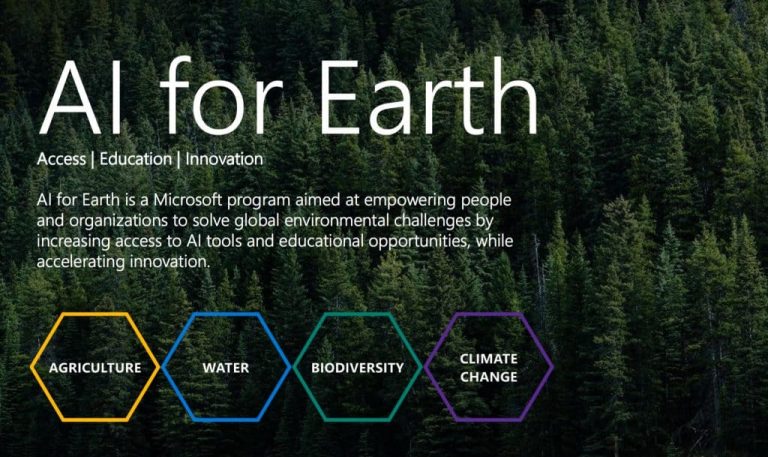Microsoft today announced a new AI for Earth Program. The program was revealed at an AI event in London and aims to put the power of artificial intelligence towards solving the biggest environmental problems in our world today.
As part of the program, Microsoft will make a $2 million commitment and give access to cloud and AI computing resources, technology training, and lighthouse projects. And, to assist, the company has also chosen Lucas Joppa, Microsoft Research lead on computational ecology, as chief environmental scientist.
The AI for Earth Program is based on three pillars: Access, Education, and Innovation. With these pillars in mind, Microsoft is hoping to make AI more affordable and accessible to researchers and nongovernmental organizations. There is also the hope of the program driving new data insights that can help solve environmental issues related to water, agriculture, biodiversity and climate change. You can learn more about these pillars by reading below.
- Access: We will improve access by making a new pool of grants available to help researchers and organizations gain access to cloud and AI computing resources. This includes access to Azure compute time and our data science virtual machine offerings on Azure. These grant applications are available today.
- Education: We will provide new training and educational opportunities to make sure people and organizations know what AI tools are available, how to use these tools and how the tools can help meet their specific needs. Our approach will be both broad and deep, reaching many people through general session trainings as well as small group faculty summits on single issue areas and training for grantees.
- Innovation: We also want to encourage others to innovate based on the power and potential of AI. We will partner with others on lighthouse projects that demonstrate how AI can deliver results more rapidly, accurately and efficiently. Already, we have three projects underway – one enabling land cover mapping to aid precision conservation; another that will enable smart agriculture through sensors, drones, data and broadband connectivity; and another that will test the viability of using our smart mosquito traps to remotely track and monitor species health.
Microsoft already has the goal of democratizing AI and advancing sustainability around the globe, so this latest program only builds on the company’s experience. You can learn more about the AI for Earth Program by clicking here.


